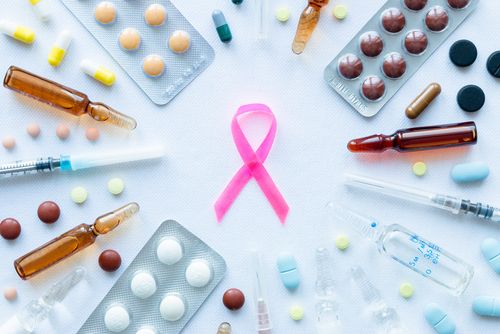



Get new exclusive access to healthcare business reports & breaking news




Breast cancer patients now have a potentially safer treatment option to look forward to. Researchers across the country are currently recruiting patients for the clinical trial of a gel designed to attack cancerogenic cells with little to no side effects. In Illinois, the trials are being conducted at Northwestern University.
This is the first time Tamoxifen is being tested as a topical gel. Tamoxifen has been around for decades in pill form and it’s one of the most prescribed drug in the world for people with breast cancer.
The pill’s high efficiency came with a great price. People reported side effects ranging from hot flashes and fatigue to, in some cases, uterine cancer and stroke. As a result, many patients chose to avoid it altogether.
Now, scientists are hoping the gel will prove to be a safer, yet an equality effective treatment.
Unlike the pill, the gel is a topical treatment, and therefore very little may circulate throughout the bloodstream and body, Northwestern breast cancer surgeon Dr. Seema Khan explained.
Khan and her colleagues are trying to see if the gel works on patients with early stage of breast cancer, or DCIS. For people with DCIS or ductal carcinoma in situ, the cancer cells line the milk ducts of the breast, but they haven’t spread out to the surrounding breast tissue.
One of the participants in the clinical trials with DCIS is former Chicago Tribune writer Patricia Tennison. Tennison, who was diagnosed with DCIS earlier this year, tried both the gel and the pill, before undergoing surgery.
This was a blind study meaning that patients, including Tennison, were given a placebo, but neither them nor the doctor knew if the placebo is the pill or the gel. If the gel is as effective as the pill, more women might accept gel medication for DCIS and for breast cancer prevention.
“We hope it will decrease the growth rate of the cells and it will really provide very important information to help other women in the future,” Dr. Khan said.
Tennison’s is now cancer-free, but the scientists’ work is far from being over. Northwestern will enroll up to 100 women in this study. Scientists will later divide them in two groups. One group will be applying placebo gel to each breast once every day for up to 10 weeks prior to surgery and also take a medicated capsule by mouth once daily. The other group will be given the active gel, but a placebo pill.
“Applying medicated gel to the breast skin in the weeks leading up to your breast surgery will not treat your current condition and will not interfere with your surgery,” reads the university’s website. “But will help us find out if this may be a safe and effective method for breast cancer prevention.”
Participants will be compensated up to $300 and the results may come in two years.
For Illinois, the prospect of treating breast cancer with something as simple as a medicated gel applied on the skin would bring hope for thousands. Traditional breast cancer treatment options – chemotherapy, radiation, and surgery – are usually more invasive than a gel.
Each day 28 women are diagnosed with breast cancer in this state, according to the Illinois Department of Public Health (IDPH). Moreover, black women in Chicago have a 62% higher risk of dying from breast cancer compared to white women.
On a positive note, the state of Illinois is taking on more early-detection initiatives. The Illinois Breast and Cervical Cancer Program (IBCCP) provides free breast exams, mammograms, Pap tests and pelvic exams to uninsured women.
The state was praised in a new report for increasing access to healthcare for low-income residents who depend on Medicaid for cancer prevention, early detection, diagnostic, treatment, and survivorship care services.
Similar to their Northwestern peers, researchers with the University of Illinois at Chicago are focusing their efforts on finding a cure. Recently, they developed breast cancer drug that holds the potential to help women whose cancer has stopped responding to hormone therapy.